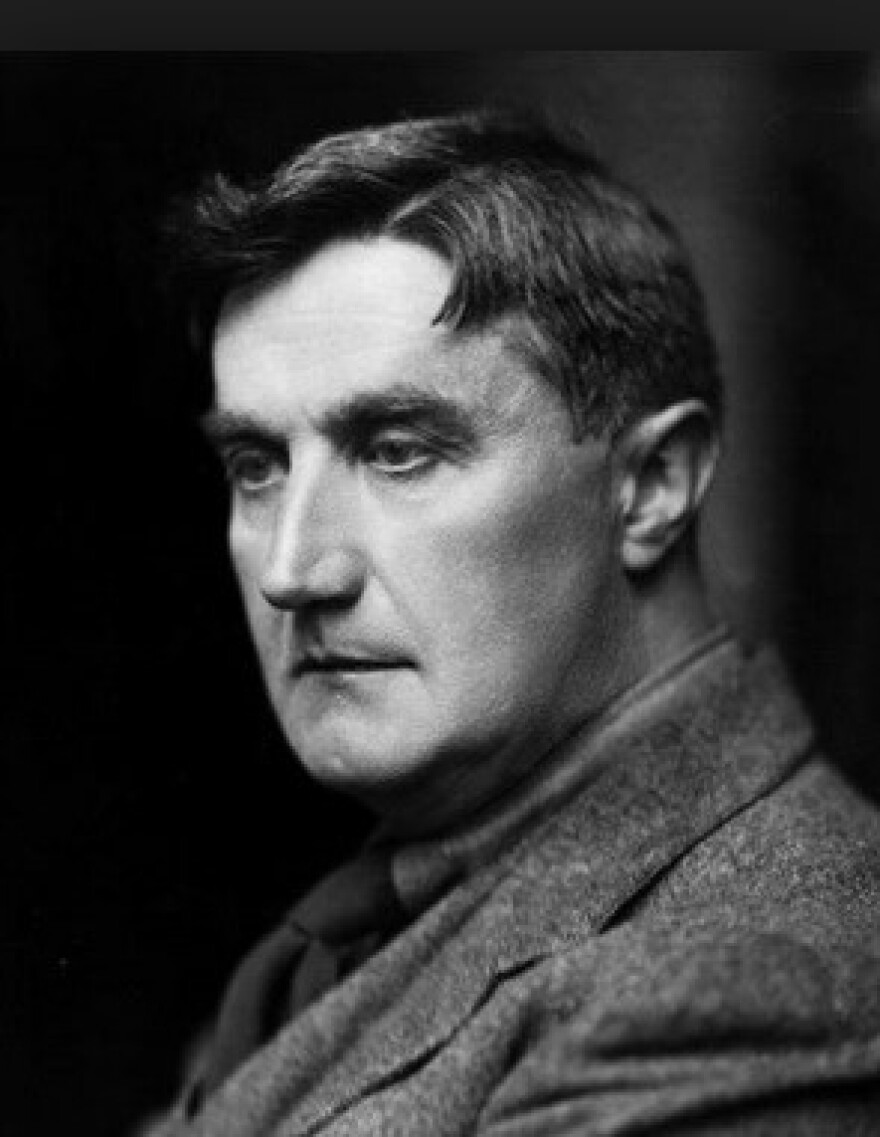Ralph Vaughan Williams spent 60 years in the public eye as a composer, conductor, professor and writer. His work set off a renaissance of English music in the 20th century.
Vaughan Williams was the youngest of thre children born to Rev. Arthur Vaughan Williams; part of a very prestigious family of lawyers and judges. As a young child he was encouraged to pursue music and he quickly excelled at the piano, organ and violin. Even at an early age he found himself drawn to composition and studied at the Royal College of Music in London and at Trinity College, Cambridge.
However, some of his professors doubted he had what it took to be a successful composer. One classmate recalled over hearing some of the faculty saying that Ralph “was so hopelessly bad at it”. Later, Vaughan Williams would write that he struggled early in his career in an effort to find his own musical voice. He was unhappy with the current state of music in England, bowing to the influences coming from the rest of Europe. He decided that, for him, the answer lay in the English folk tradition of the past. An ideal he shared with his longtime friend, Gustav Holst.

Vaughan Williams finally found success with his works On Wenlock Edge and Fantasia on a Theme by Thomas Tallis. He was also instrumental in selecting tunes for the English Hymnal. Vaughan Williams had a complicated relationship with religion. He admired the cultural institution of the church but he personally wavered between atheism and agnosticism.
During World War I, he answered the call of patriotism and served his country even though he was already 42 years old. After the war he took a position at the Royal College of Music. His style of instruction encouraged his pupils to find their own musical voice, much in the same way that he did. In the midst of his teaching, he still composed. His 4th Symphony helped to secure his status as the premiere British composer.
During World War II, he worked in the relief effort for German refugees, especially musicians, organizing concerts at the National Gallery. After the war he struggled with his status as an almost spiritual leader of English music. He was in good health but almost completely deaf. In 1951 his wife of 54 years, Adeline, passed away. What followed was a period of travel and lecture.
Ralph Vaughan Williams died in 1958. His remains were interred at West Minster Abbey alongside the likes of C.V. Stanford and Henry Purcell. His work remains a cultural touchstone of British Music.
Timeline is an exploration into the development of Western music. Listen through the Timeline on our new web app.




